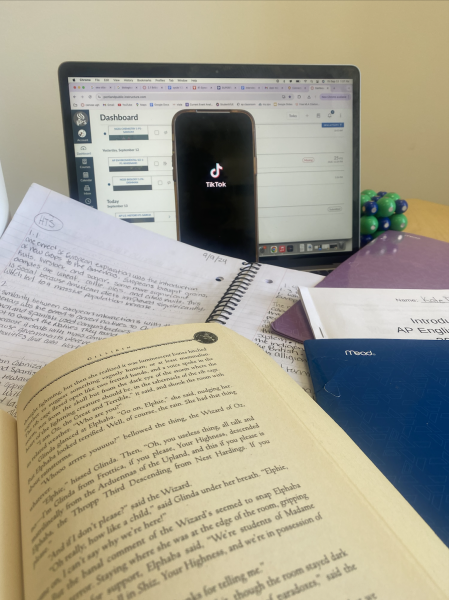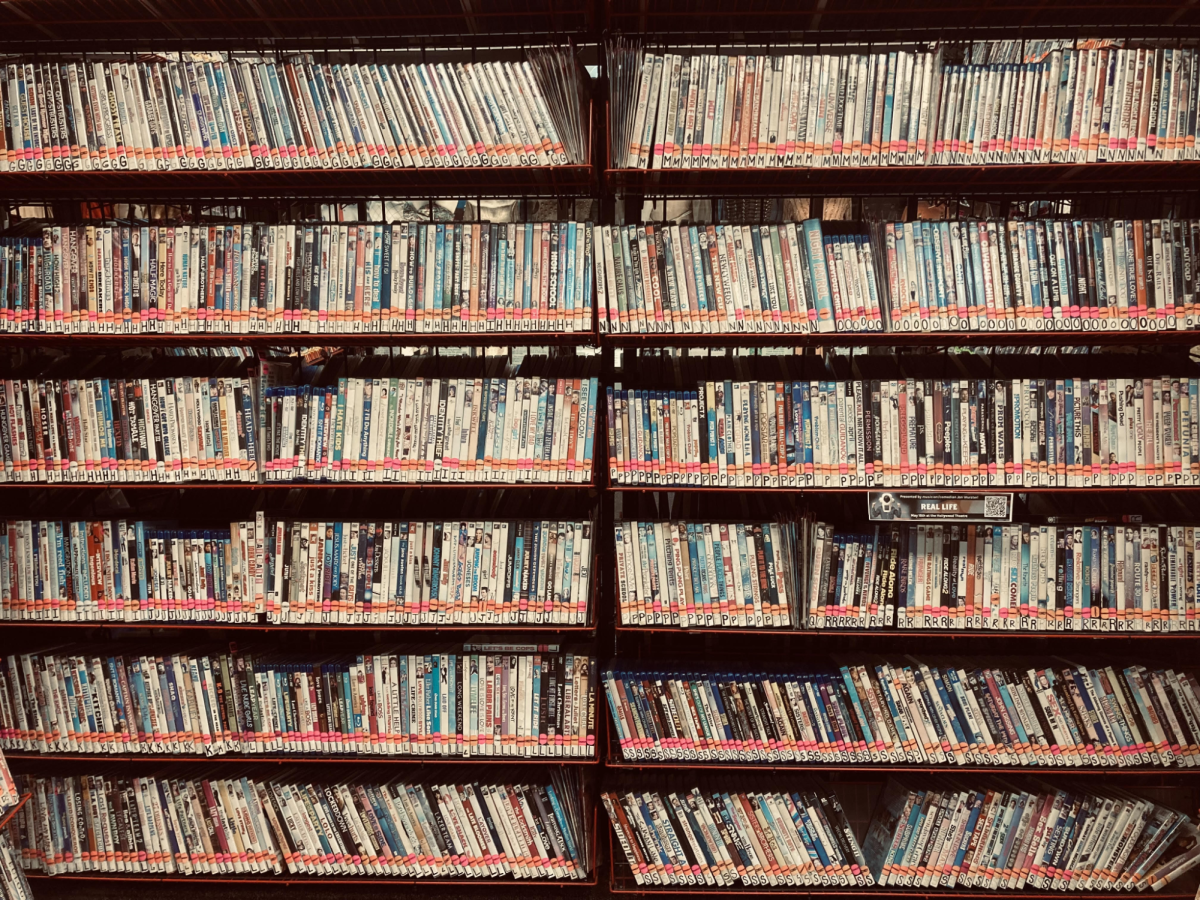
As teenagers in 2024, daily cell phone use is a widely accepted social norm. Wake up, check social media, then start the day. As active high school community members, teenagers are expected to have a social media presence. Profiles are created, pictures are posted, and we become immersed in everything the internet has to offer. Adolescence is a time when impressions and influence from others is inevitable, which can be both beneficial and detrimental to a teenager’s mental health.
In most cases, it’s the latter. Many teenagers become so engrossed in their online existence, that they spend hours of their day scrolling, liking, and posting. As a teenager with an addiction to my phone, I believe that the constant need to check one’s phone is the reason why so many teens have trouble concentrating. Whether it’s in class, at home, or even switching from one app to another, the habit is pointless and superfluous.
“The number of different apps and sources of information on phones encourages and maybe even creates an environment built on distractibility,” said Heidi Alsop, a mental health counselor in Portland. “I think it’s pretty rare these days to just focus on one thing at a time with no distractions at all, especially with a handheld source of distraction never far away.” Alsop has worked with teenagers in residential care, who do not have access to cell phones or social media, but has still observed changes in their social lives. “[My teen clients] are much more likely to have their friend groups be virtual rather than in person than it was in the past, and they associate and communicate with people all over, not just local friends.”
According to the National Library of Medicine (NLM), overall cell phone use has increased significantly since the beginning of the COVID-19 pandemic. During the lockdown, we used technology to communicate constantly, which led to dependency and addiction for many adults and teenagers. “I use my phone to look things up, to do research about things, shopping, booking vacations, etcetera. I use my phone way more than my personal computer for most everything except writing,” Alsop stated, though she makes clear that her use of social media is limited due to ethical boundaries with clients. “[I] sometimes access Instagram or TikTok, mostly when people send me links.”
Everyone is different, but most cases of screen addiction are concentrated in young adults, according to the NLM. Is this because of a generational increase of tech use, or is it due to a lack of psychological education? I believe that if more teenagers learned about the brain and its reaction to screens, it could create awareness around cell phone use and its harmful effects.
“As attention wanders, being gentle with oneself and pulling one’s attention back to the current situation or task, can slowly create change over time,” Alsop said. In her practice, she uses Dialectical Behavior Therapy (DBT). In order to help teenagers regain focus and stability, Alsop suggested taking the time to learn certain skills and processes. “One of the skills I teach is ‘one thing in the moment,’ which is helpful to avoid being overwhelmed by the number of demands, tasks, alerts, and relationships that we deal with on a daily basis,” Alsop shared. “It takes time and practice to develop the skills to do this, and becoming aware is one of the first steps, and then putting the skill into practice.”
To become aware of the effect cell phones have, one should familiarize themselves with the role dopamine plays. According to Harvard Health Publishing, dopamine is a complex neurotransmitter that sends waves of pleasure to the brain and is almost always activated by videos and interactions on the internet. Even though the need for inclusion in society starts the addiction to social media and screens, it continues to thrive under the haze of dopamine.
“The problem about social media is that it releases dopamine endorphins,” Samuel “Chi” Baker, a professional counselor and clinical supervisor of his private practice, stated. “The backlash of that [social media] withdrawal is anxiety. Unless you keep feeding [the addiction], you’re going to go into withdrawals.” In my discussion with Baker, we talked about strategies to reduce the constant withdrawals when dealing with a screen addiction. “The longer people don’t use social media, the less of a withdrawal they’ll have, because they don’t have as much [dopamine] in their system, similar to a drug.”
In my experience, withdrawal from cell phones can look many different ways. Currently, you can see it in almost any classroom at Franklin. With the new cell phone policy, kids are limited to classwork or books during a class period. At first, much like everyone else, I hated this policy. While not everyone agrees, most of the students I’ve spoken to about the policy have shared that it’s been incredibly beneficial for their ability to focus. Very few students still complain about it, and it’s become accepted throughout the school quickly, which is reason to believe that information about the danger of cell phone addiction can be received well too.
To be fully transparent, I love my phone. I enjoy TikTok, and I appreciate Instagram because I can communicate with many friends I’m not as close to. However, I can also acknowledge that it’s been and will continue to be terrible for me. It’s a source of entertainment, an area where I can pursue my interests privately, but it’s also a place for my insecurities to thrive, and where I can get lost for hours and forget to come up for air.
When asked for strategies that will improve adolescent focus, Alsop suggested “encouraging time away from the consistent distractions provided by electronics” and having others provide “an explanation of how this is helpful to relationships and soothing to the mind and body.” So, take a walk, read a book, lie on the floor and listen to music. Use any and all motivation to achieve your goals. That isn’t to say that cell phone use is pointless, or that I’ll ever stop using social media, but I feel my best after working out and I feel even better after spending time with my friends. I can still get lost, just in the pages of a classic. In the end, the sense of accomplishment will be better than any amount of time spent on a cell phone.

































